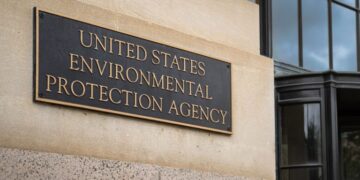June 17, 2025 Story by: Editor
The NAACP, represented by the Southern Environmental Law Center (SELC), sent a 60-day notice to Elon Musk’s artificial intelligence startup xAI on Tuesday, signaling intent to sue over alleged pollution from its South Memphis data center. The letter, citing violations of the Clean Air Act, alleges the operation of unpermitted methane gas turbines is harming the health of nearby predominantly Black communities.
Gas turbines release smog-forming pollution and hazardous chemicals like formaldehyde. These pollutants are tied to increases in asthma, respiratory diseases, heart problems, and certain cancers. XAI’s South Memphis data center is located near predominantly Black communities that are already overburdened with industrial pollution from dozens of industrial facilities, including an oil refinery, a steel mill, and a TVA gas plant. Studies show that Boxtown, the neighborhood closest to the xAI data center, faces a cancer risk four times the national average.
“All too often, big corporations like xAI treat our communities and families like obstacles to be pushed aside,” NAACP President Derrick Johnson said. “We cannot afford to normalize this kind of environmental injustice—where billion-dollar companies set up polluting operations in Black neighborhoods without any permits and think they’ll get away with it because the people don’t have the power to fight back. We will not allow xAI to get away with this.”
Alleged Violations
- The SELC claims xAI installed at least 35 methane-fueled turbines to power its supercomputer facility. Nearly all began operating in April without federal emissions permits or required pollution control technology.
- Though labeled as “portable,” these turbines qualify as a major source of emissions and are subject to Clean Air Act requirements. SELC asserts that federal and county regulations mandate the best available control technology, which xAI has not installed.
- The turbines emit nitrogen oxides, formaldehyde, and potent greenhouse gasses, adding to existing air quality burdens and heightening health risks including respiratory illnesses and cancer.
Responses
- SELC Senior Attorney Patrick Anderson stated:
“XAI’s decision to install and operate dozens of polluting gas turbines without any permits or public oversight is a clear violation of the Clean Air Act,” SELC Senior Attorney Patrick Anderson said. “Over the last year, these turbines have pumped out pollution that threatens the health of Memphis families. This notice paves the way for a lawsuit that can hold xAI accountable for its unlawful refusal to get permits for its gas turbines.”
- An xAI spokesperson responded:
“The temporary power generation units are operating in compliance with all applicable laws.”
xAI also noted plans to add emission-reduction technology and highlighted community investments: a $35 million power substation, an $80 million water-recycling plant, hundreds of jobs, and millions in tax revenue.
Environmental Justice Concerns
- South Memphis—especially the Boxtown neighborhood—has faced persistent environmental challenges, including elevated asthma rates and cancer risks. Current pollution levels are reported at four times the national average.
- SELC’s Libbie Weimer used now-defunct federal data tools to establish that the community ranks in the 90th percentile nationally for toxic air release.
- SELC warned that by replacing older turbines with larger ones, xAI worsened pollution levels without proper oversight.
The Memphis metro area already struggles with significant and growing problems with ozone pollution—better known as smog. The last four years of air monitoring data show that the Memphis metro area is violating national smog standards and that the problem is getting worse, not better. This year, Shelby County once again received an “F” for ozone pollution from the American Lung Association.
XAI has faced significant public pushback from Memphians over the last year. Community groups have held protests as hundreds of people submitted comments to the Shelby County Health Department in opposition to the company’s use of polluting gas turbines.
Local and federal regulations require xAI to obtain appropriate air permits before operating its polluting gas turbines. While some local leaders, including the Memphis Mayor and Shelby County Health Department, have claimed there is a “364-exemption” for xAI’s gas turbines, they have never been able to point to a specific exemption that would apply to turbines as large as the ones at the xAI site.
Legal Context and Next Steps
- Under the Clean Air Act, defendants must receive a 60-day notice before a lawsuit can be filed. SELC’s letter is a formal warning that legal action will follow if xAI doesn’t secure permits and install pollution controls.
- The Shelby County Health Department is reviewing xAI’s permit application. The public supplied over 1,700 comments, many calling for rejection.
- If the lawsuit proceeds, xAI could be compelled to cease operations, retrofit turbines with pollution controls, and face enforcement penalties.
Broader Implications
- This case illustrates broader challenges involving AI infrastructure’s reliance on fossil fuels and questions around permitting and transparency in communities already facing environmental racism.
- The dismantling of federal tools like EJScreen complicates monitoring efforts—but SELC has bypassed this using alternative sources such as local emissions inventories.
- Observers warn that data centers should not be sited without clean energy alternatives, especially where they disproportionately harm marginalized communities.
What Comes Next?
- xAI must decide whether to secure permits, install controls, or remove unpermitted turbines before the 60-day deadline.
- SELC and the NAACP will pursue legal action if xAI fails to act, potentially setting a major precedent for AI-industry environmental accountability.
- Shelby County regulators may issue or reject permits, guided by public feedback.
- Community members and local activists will continue to monitor air quality and campaign for transparency and health protections.
Conclusion
The NAACP and SELC’s action against xAI is a landmark moment where AI innovation meets environmental justice. As high-power data centers demand more fossil-fueled energy, local communities are drawing the lines—insisting that economic development not come at the expense of public health. The outcome of this conflict could define how future AI infrastructure balances growth with environmental equity.
Source: AP News / Reuters / SELC / The Guardian
















